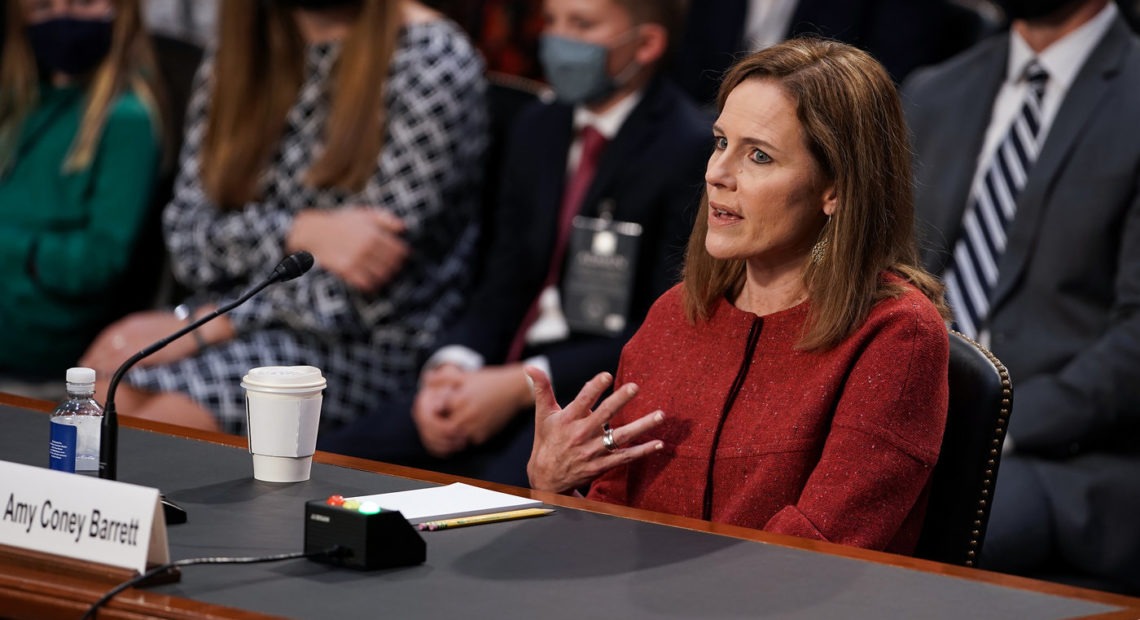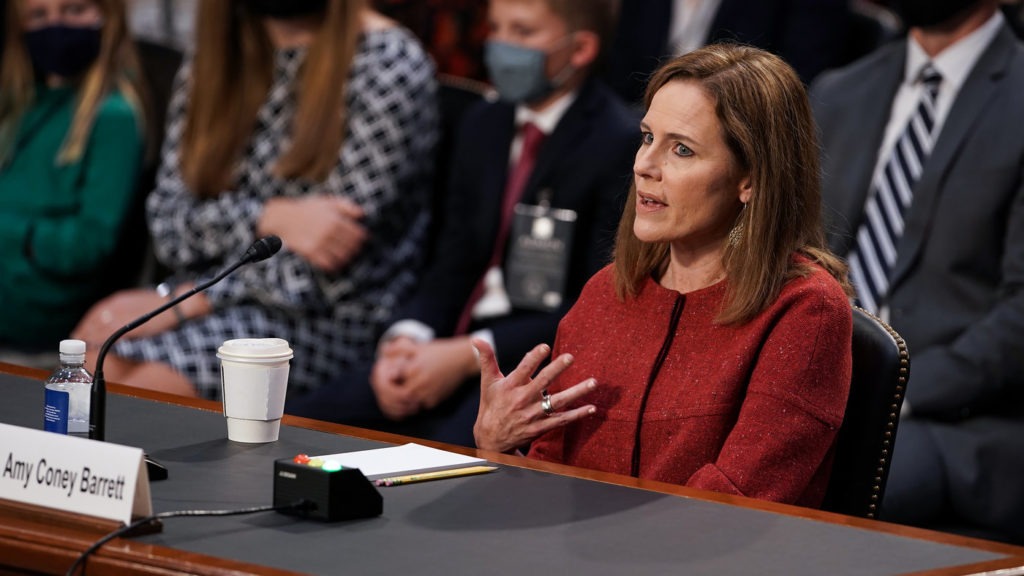
Day 2 Of Amy Coney Barrett’s Confirmation Hearings Brings Questions Of Recusal, Health Care Views
WATCH DAY 2, Oct. 13, 2020:
BY BRIAN NAYLOR & PHILIP EWING
Supreme Court nominee Amy Coney Barrett has, like many of the recent nominees before her, been unwilling to tip her hand as to how she might rule on potential high-profile cases if confirmed to the high court.
But she also has left some hints as to her leanings, especially on the topic of abortion rights. As a University of Notre Dame Law School professor, Barrett signed an ad that stated, “It’s time to put an end to the barbaric legacy of Roe v. Wade,” referring to the landmark 1973 Supreme Court decision that legalized abortion nationwide.
SEE MORE CONFIRMATION HEARING UPDATES HERE
During Tuesday’s Senate Judiciary Committee hearing, Sen. Amy Klobuchar, D-Minn., referred to a law review article Barrett wrote, outlining her views on “super-precedents” and questioned why Barrett didn’t consider Roe to be among them.
The way they’re defined in scholarship, Barrett said, are “cases that are so well settled that no political actors and no people seriously push for their overruling. And I’m answering a lot of questions about Roe” in the confirmation hearing, she said, “which I think indicates that Roe doesn’t fall in that category.”
Barrett went on to say that that scholars “across the spectrum say that doesn’t mean that Roe should be overruled, but descriptively it does mean that it’s not a case that everyone has accepted.”
She said among the handful of cases that are considered “super-precedents” are Brown v. Board of Education, the 1954 ruling that outlawed racial segregation in public schools, and Marbury v. Madison, which in 1803 gave courts the authority to strike down laws as unconstitutional.

President Trump’s Supreme Court nominee Judge Amy Coney Barrett testifies during the second day of her Senate Judiciary confirmation hearing on Tuesday.
CREDIT: Greg Nash/Pool/Getty Images
Klobuchar said that Barrett’s views on Roe, her criticism of the legal reasoning behind Chief Justice John Roberts’ ruling in favor of the Affordable Care Act and other decisions on gun rights and same-sex marriage were “tracks” as to how Barrett would rule in similar cases.
“I think the American people have to understand that you would be the polar opposite of Justice Ginsburg,” Klobuchar said. If confirmed, Barrett would replace the late Justice Ruth Bader Ginsburg. “She and Justice Scalia were friends,” Klobuchar said, referring to the late Justice Antonin Scalia, for whom Barrett was a law clerk. “But she never embraced his legal philosophy,” Klobuchar said.
‘Won’t Be A Pawn’
Barrett told Democrats Tuesday that she would take recusal seriously if any case reaches the Supreme Court involving President Trump’s election — then stated more strongly that she would not be Trump’s “pawn.”
Delaware Sen. Chris Coons revived the question about an election dispute during his portion of the hearing on Tuesday afternoon. The judge said she wanted to make as clear as possible that she would be her own woman.
“I certainly hope that all members of the committee have more confidence in my integrity than to think that I would allow myself to be used as a pawn to decide this election for the American people,” Barrett said.
“I do assure you of my integrity,” she continued, “and I do assure you that I would take that question very seriously.”
The federal recusal statutes, which Barrett and Coons discussed, contemplate a judge absenting herself from a case if she has a conflict — a relationship with one of the parties in the case, for example — or the appearance that the judge can’t be fair.
Democrats have criticized appointees they consider too loyal to Trump personally and not to their duties, such as Director of National Intelligence John Ratcliffe, whom critics call the president’s factotum within the spy world.
Ratcliffe vowed at his confirmation hearing, in tones like those used by Barrett on Tuesday, that he was his own man and that he would discharge his duties accordingly.
Coons and Democrats, however, are leery following Trump’s comments and past practices. Barrett, meanwhile, has restated over and over that she isn’t willing to talk in detail about how she might rule if confirmed; all she can do, she said, is promise she’ll reach decisions the right way.
Copyright 2020 NPR. To see more, visit npr.org















